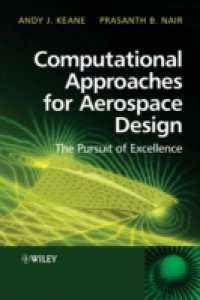Over the last fifty years, the ability to carry out analysis as a precursor to decision making in engineering design has increased dramatically. In particular, the advent of modern computing systems and the development of advanced numerical methods have made computational modelling a vital tool for producing optimized designs. This text explores how computer-aided analysis has revolutionized aerospace engineering, providing a comprehensive coverage of the latest technologies underpinning advanced computational design. Worked case studies and over 500 references to the primary research literature allow the reader to gain a full understanding of the technology, giving a valuable insight into the world s most complex engineering systems. Key Features: Includes background information on the history of aerospace design and established optimization, geometrical and mathematical modelling techniques, setting recent engineering developments in a relevant context. Examines the latest methods such as evolutionary and response surface based optimization, adjoint and numerically differentiated sensitivity codes, uncertainty analysis, and concurrent systems integration schemes using grid-based computing. Methods are illustrated with real-world applications of structural statics, dynamics and fluid mechanics to satellite, aircraft and aero-engine design problems. Senior undergraduate and postgraduate engineering students taking courses in aerospace, vehicle and engine design will find this a valuable resource. It will also be useful for practising engineers and researchers working on computational approaches to design.

